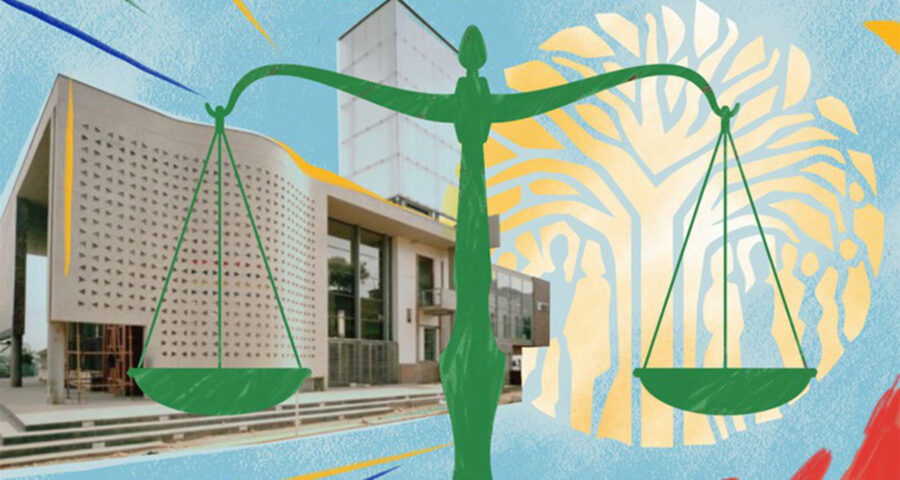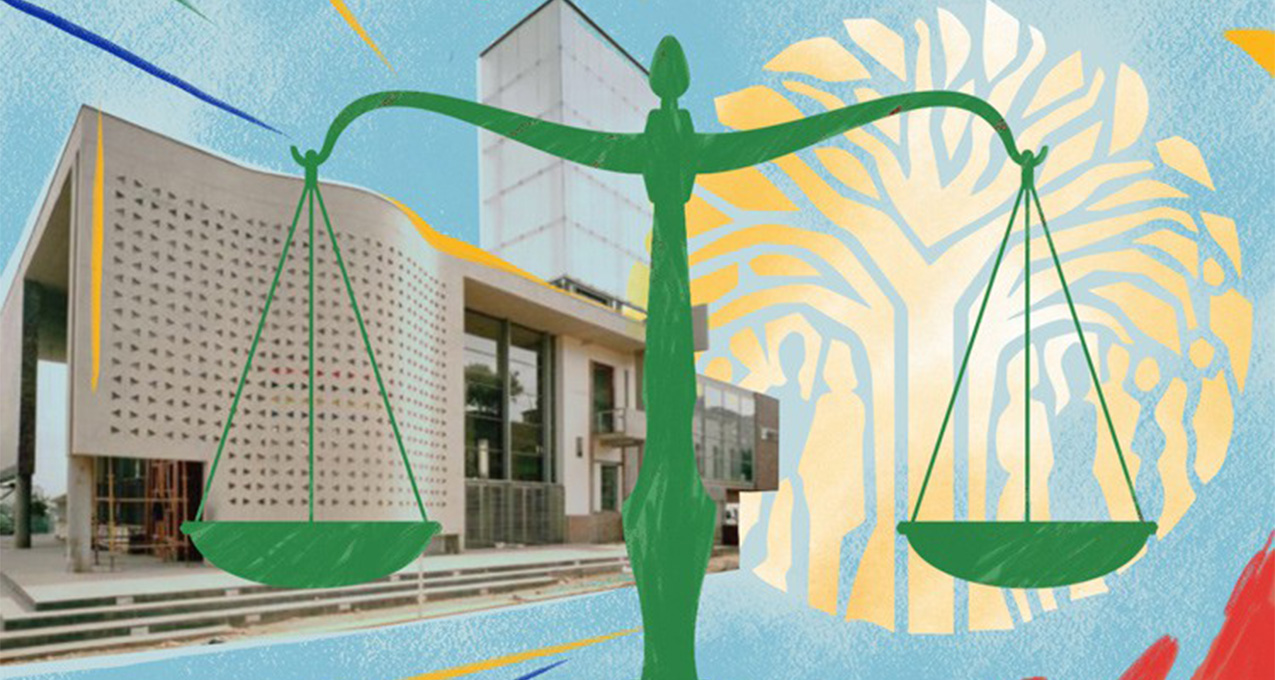
Court in South Africa Orders Public Apologies to Chinese Community
On 28 June, the Gauteng High Court (sitting as the Equality Court) found that comments made about Chinese people on Facebook constitute hate speech in terms of the Promotion of Equality and Prevention of Unfair Discrimination Act (PEPUDA). By Geoffrey Allsop The Equality Court has ordered a number of people to apologise to the Chinese […]

On 28 June, the Gauteng High Court (sitting as the Equality Court) found that comments made about Chinese people on Facebook constitute hate speech in terms of the Promotion of Equality and Prevention of Unfair Discrimination Act (PEPUDA). By Geoffrey Allsop
-
The Equality Court has ordered a number of people to apologise to the Chinese community and to pay R50,000 to a Chinese old age home.
-
Comments posted on the Facebook pages of Carte Blanche TV programme and the Karoo Donkey Sanctuary were found to be hate speech.
-
The Chinese Association of Gauteng identified 12 people who had made discriminatory statements and brought the case to the Equality Court.
In January 2017, Carte Blanche aired a programme about animal abuse and the donkey skin trade. Among other things, it showed people slaughtering donkeys in an inhumane manner. The programme was aired the day after the Chinese new year.
After the programme was aired, various comments were posted on the Facebook pages of Carte Blanche and the Karoo Donkey Sanctuary. Many comments made xenophobic and harmful statements about Chinese people.
The Chinese Association of Gauteng identified 12 people who had made discriminatory statements, and began proceedings in the Equality Court against them to declare that their statements constituted hate speech. The Association also asked the Equality Court to make an order requiring them to publish an apology, attend a human rights sensitisation course, and pay damages and legal costs.
Three respondents did not oppose the case. Six others admitted in court papers that their statements constituted hate speech and unfair discrimination under PEPUDA. They also did not oppose the proceedings.
Only two respondents opposed the case – David Clive Horne and Mariette van der Linde de Klerk.
Horne had posted a comment: “Personally, I say wipe them out I’d be the first one to be there.”
De Klerk had posted a comment: “We need to get rid of the Chinese in SA…they are not welcome, they steal our economy, dogs, Rhino and now donkeys. I think the same as the donkeys can be applied to dogs and our pets.”
What the Chinese Association argued
Henry Yon Wing testified that the Facebook posts deeply hurt him and made him feel despondent. The Facebook comments reminded him of the racism he experienced growing up in Fietas, Johannesburg, during apartheid. He was angered by the comments because they created the impression that white people thought they could still make “deeply damaging, hurtful and racist comments in the new democratic South Africa”.
Erwin Ming Pon, chairman of the Gauteng Chinese Association, also testified. He said he was born in South Africa after his family came to the country in the 1930s, after his great-grandparents fled China because of civil unrest and war.
Pon said he and his family faced various forms of discrimination during apartheid. His grandparents were forcefully removed from Sophiatown and were relocated to a place called “Malay camp” during the forced removals in the 1950s. His parents were only able to buy a property in Parkhurst, then a “white area”, because they used a white person as a front to buy the property. Chinese people were not allowed to buy property in a “white area” during apartheid.
Pon said he was often bullied by other children who told him “go back to China and pulled their eyes and made fun of him”. He also faced discrimination when he used to swim in the Parkhurst public pool because he was told to leave whenever white children arrived to swim.
After 1994, he had hoped that apartheid-era discrimination would be “wiped out and forgotten” and that he was proud to finally be recognised as a South African citizen after he had voted in the 1994 election.
After the Facebook comments were published, Pon was very upset and emotional. The comments made him concerned for the safety of his children and his family because he viewed the comments as violent, racist and xenophobic. The Facebook posts were only removed after he contacted Emma Sadleir, a media lawyer, who wrote to the administrators of the Facebook pages to have the comments removed. But this only happened after the posts had been viewed by thousands of people.
What the respondents argued
David Clive Horne testified in his defence. He said that his comments were taken out of context. This was because he had never intended to refer to Chinese people.
When he posted “wipe them out” he was only referring to gangs who were involved in the unlawful or cruel killing of animals.
The intention of his post was simply to convey that people who were involved in cruelty to animals must be held accountable. He was not referring to any particular nationality when he made the post and never referred to Chinese people, he said.
Horne agreed many of the statements posted about Chinese people on Facebook were unacceptable. He also said that he identified with the hurt felt by the Chinese community. He maintained, however, that his statements were not hate speech and that he had no intention to discriminate against Chinese people when he made the post.
In her court papers, De Klerk denied that she had written the Facebook post. However, she decided to not testify in her own evidence.
What the Equality Court found
Judge Matsamai Makume considered three main questions: whether the posts by Horne and De Klerk constituted hate speech under PEPUDA; whether the posts by the other respondents (who did not oppose the case) constituted hate speech; and the appropriate order that the court should make.
Judge Makume found that the Facebook post by Horne was not hate speech, accepting Horne’s assertion that his post only referred to people who are involved in animal cruelty, not Chinese people.
Judge Makume, however, did find that De Klerk was guilty of hate speech. This was because her lawyers had written various letters to the lawyers for the Chinese Association where she admitted (and) apologised for making the Facebook posts. This was inconsistent with the argument she did not make the posts in the first place. Because De Klerk did not testify, she gave no explanation about why her lawyers had written letters, on her behalf, which had admitted that she wrote the Facebook posts.
Unlike Horne, the Facebook post of De Klerk clearly referred to the “Chinese in SA”. The Court said that this obviously referred to Chinese people within South Africa. When she used the words “get rid of” was intended to convey the impression that Chinese people in South Africa are something which is “troublesome” or “unwanted” and which should be removed.
Pon had also testified that the words “get rid of” created the impression that Chinese people in South Africa were considered similar to rats or vermin. This violated their sense of dignity and self-worth, he said.
Considering whether the Facebook posts constituted hate speech in terms of PEPUDA, Judge Makume said that the posts, aside from Horne, all clearly conveyed an intention to unfairly discriminate against Chinese people on the basis of their race and social origin. This meant that the statements constituted hate speech in terms of the PEPUDA, the judge found.
All the respondents who did not oppose the case were ordered to publish an unconditional apology within 30 days and to pay R50,000 each to the Hong Ning Chinese old age home.
Judge Makume also ruled that any respondent who could not pay this amount could approach the Court with an affidavit setting out their financial situation. That respondent, as an alternative to paying damages, would then be required to attend a training course on how to remove hate speech from the internet and would have to provide the Chinese Association with monthly reports setting out how many hours they had spent removing hate speech. They would also be required to attend a human rights sensitisation course conducted by the South African Human Rights Commission.
Because De Klerk opposed the case, she was ordered to pay R150,000 to the Hong Ning Chinese old age home and was ordered to pay legal costs.
